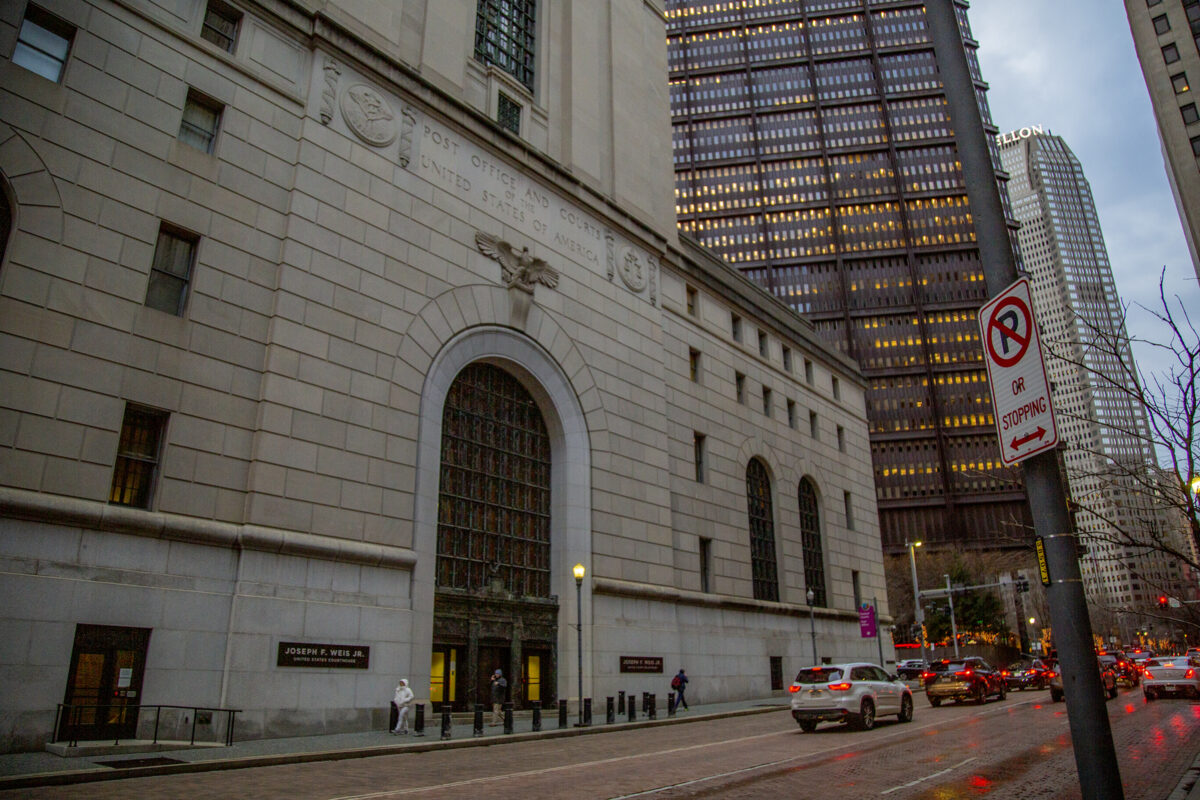Most drug defendants charged in federal court end up pleading guilty — like almost everyone else charged in federal court — but a Florida man from Jamaica reputed to be a major cross-country cocaine dealer elected a trial, and testimony is now underway in U.S. District Court.
The case is six years old, and the amounts involved are substantial: 37 pounds of cocaine seized in one bust alone in 2017.
Racoco Williams, 41, has been in custody ever since, charged with possession with intent to deliver 5 kilos or more of cocaine, interstate travel in aid of racketeering and other offenses following an investigation by state police and federal agents with the U.S. Department of Homeland Security.
A search of Racoco’s room at the Extended Stay Hotel in August 2017 turned up 17 kilos of coke — about 37 pounds — and $192,000 in cash, according to indictments handed up in 2017 and 2019.
Based on recorded jail calls, Racoco is expected to argue that a woman he didn’t know put the cocaine in his room. He’s also arguing that 6 kilos of coke recovered earlier from a Carnegie stash house wasn’t his, either.
But federal prosecutors say Williams, who has a criminal record stretching from Arizona to the United Kingdom, is the leader of a major drug and money-laundering operation. As such, he was charged under the federal kingpin statute, which carries a possible life term and a $32 million fine.
Agents say Williams, of Lauderhill, Fla., had been conspiring with others from 2012 through 2018 to deal more than 150 kilos of cocaine using a network of female couriers traveling with drugs and money in their luggage on trips from Phoenix and Las Vegas to distribution cities, including Pittsburgh.
Assistant U.S. attorneys Brendan Conway and Karen Gal-Or described the structure of the drug ring as a “chain,” with Williams acquiring coke and pot and distributing it to lieutenants for sale to their own underlings. Conway said Williams arranged for the transportation of millions of dollars in drug money and hundreds of kilos of coke to and from various locations in the U.S.
He led the conspiracy, prosecutors said, despite being arrested twice in Arizona during that time.
He was first nabbed in Phoenix in 2012 after the sheriff’s office there received information that Jamaican drug dealers were looking to buy 800 pounds of marijuana. Williams brokered that deal, investigators said, after which law officers recovered an AK-47 and $278,280 in cash. Williams pleaded guilty in that case and got probation.
He was arrested in Arizona again in 2014 after a DUI traffic stop during which a deputy found $100,000 hidden in luggage. Williams received probation again.
He was already well familiar with drug prosecutions, having been convicted in the U.K. in 2004; law officers said he dealt crack cocaine and heroin. He was sentenced to four years in prison and deported to Jamaica in 2005, but less than a year later authorities arrested him again after he presented a fake passport to immigration agents in the U.K.
He had drugs in his luggage, too, prosecutors said. He got 42 more months in prison and again sent home to Jamaica.
In the U.S., prosecutors said, Williams continued dealing. Evidence showed he supplied drug dealers in Pittsburgh. In 2016, for example, law officers recovered a kilo of coke supplied by Williams to an associate in Pittsburgh, and an undercover officer made five controlled payments for drugs from an associate that year.
During one of those deals, the undercover recorded a phone call between the associate and Williams, prosecutors said.
Agents also executed a search warrant in Carnegie in April 2017 following the delivery of a parcel filled with marijuana to a stash house in that town. The search turned up 6 kilos of cocaine and $78,500 in cash. Agents determined that Williams’ female couriers had delivered the cocaine to the house.
The following month, police executed a traffic stop on Williams in Swissvale. That led to a search of a hotel room that turned up $100,000 in cash, four cellphones, jewelry and other evidence, prosecutors said.
The search of another hotel room in Monroeville that yielded the 17 kilos of coke came in August of that year.
Prosecutors said Williams and his co-conspirators used rape as a weapon against their couriers to ensure that they continued to follow orders. At least four of the women were raped by members of Williams’ gang, according to the government.
Prosecutors said Williams was aware of the rapes and made statements indicating that he exercised control over the rapists. An informant also told law enforcement that Williams said he planned to kill one of his couriers because he thought she was cooperating with the law.
Prosecutors said Williams’ criminal escapades continued even after his arrest in August 2017. They said Williams was involved in the transportation of a BMW, registered in his wife’s name, from Arizona to Pittsburgh. Police seized the car in March 2018 and discovered 2.57 kilos of coke in a hidden compartment.
Prosecutors said Williams had told an informant that he dealt between 50 and 100 kilos of coke a month and was still dealing even though he was in U.S. custody.
Williams used his drug proceeds for jewelry, travel and real estate, according to the government, and set up shell companies to launder his illicit gains. As one example, prosecutors said Williams bought two properties in Penn Hills in 2016 through RW Realty Investments using drug money.
The trial began Monday before U.S. District Judge Joy Flowers Conti.
Torsten covers the courts for the Pittsburgh Post-Gazette, but he's currently on strike. Reach him at jtorsteno@gmail.com.


